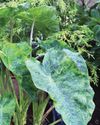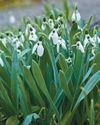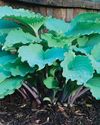
There is a green-thumb moment in every gardener's life when we realize that our plants truly want to grow. This may not always appear to be true; there is not a gardener among us who hasn't lost a plant along the way. But when given the right conditions and cared for early on, every plant possesses the power to thrive. Happily, this potential to grow is something gardeners can tap into when we want to make more plants.
Good gardening means working with nature and taking cues from the plants in our care-for example, the fact that all plants in the wild propagate on their own, through seeds and other means, one of which is a process called layering.
Layering allows gardeners to make use of a plant's impulse to grow. By burying a stem still attached to its parent plant, we can encourage that stem to form roots. Direct contact with soil or mulch does the trick, waking up latent growth tissue within the stem. Because it is underground, that tissue develops into roots instead of shoots. This occurs naturally in the forest when leaf litter around a shrub buries its stems, and it is something gardeners have learned to take advantage of.
Compared to other kinds of vegetative propagation, layering takes longer to complete, but the actual work involved is a lot less laborious. It is best to start in the spring to allow a full growing season for the new roots to form, but some plants will form roots quickly-in a matter of weeks or months-and the process can be accelerated by slightly wounding the stem to expose the growth tissue before burying it. Ultimately, savvy gardeners plan ahead so the new plant has ample time to get established before winter sets in.
TYPES OF LAYERING
There are a number of different. layering techniques: simple, tip, serpentine, air, mound and trench.
Denne historien er fra September - October 2024-utgaven av Horticulture.
Start din 7-dagers gratis prøveperiode på Magzter GOLD for å få tilgang til tusenvis av utvalgte premiumhistorier og 9000+ magasiner og aviser.
Allerede abonnent ? Logg på
Denne historien er fra September - October 2024-utgaven av Horticulture.
Start din 7-dagers gratis prøveperiode på Magzter GOLD for å få tilgang til tusenvis av utvalgte premiumhistorier og 9000+ magasiner og aviser.
Allerede abonnent? Logg på

Pot It Up
Shake up the containergarden with theseNorth America –native perennials

THE GARDEN PATH TO PERDITION
I WAS CRUISING RIGHT ALONG, feeling okay about myself, when I came across a list of the Seven Deadly Sins.

A Productive PATIO
Tiny fruit, vegetable and herb plants help gardeners maximize any sort of growing space

TROPICAL FUSION
A FUSS-FREE APPROACH TO USING BOLD TROPICAL PLANTS IN ANY TEMPERATE GARDEN

WINTER READING
Pass the time with any of these inspiring books

SENSING A PATTERN
Greg Coppa reflects on an odd weather year and what continued warming may mean for his Rhode Island garden

TOP-PRIZE PERENNIALS
A foliage masterpiece for shade and a late bloomer for sun

MARK WESSEL
What's new for fruit and vegetable gardeners?

KINGS OF THE NORTHERN FORESTS
A look at the trees, shrubs and perennial plants that bolster life in Ecoregion 5

PROJECT FEEDERWATCH
Gardeners can help scientists know just where the birds are in winter